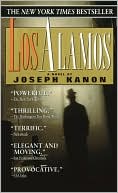Category Books
- Fiction Books & Literature
- Graphic Novels
- Horror
- Mystery & Crime
- Poetry
- Romance Books
- Science Fiction & Fantasy
- Thrillers
- Westerns
- Ages 0-2
- Ages 3-5
- Ages 6-8
- Ages 9-12
- Teens
- Children's Books
- African Americans
- Antiques & Collectibles
- Art, Architecture & Photography
- Bibles & Bible Studies
- Biography
- Business Books
- Christianity
- Computer Books & Technology Books
- Cookbooks, Food & Wine
- Crafts & Hobbies Books
- Education & Teaching
- Engineering
- Entertainment
- Foreign Languages
- Game Books
- Gay & Lesbian
- Health Books, Diet & Fitness Books
- History
- Home & Garden
- Humor Books
- Judaism & Judaica
- Law
- Medical Books
- New Age & Spirituality
- Nonfiction
- Parenting & Family
- Pets
- Philosophy
- Political Books & Current Events Books
- Psychology & Psychotherapy
- Reference
- Religion Books
- Science & Nature
- Self Improvement
- Sex & Relationships
- Social Sciences
- Sports & Adventure
- Study Guides & Test Prep
- Travel
- True Crime
- Weddings
- Women's Studies
Los Alamos »

Authors: Joseph Kanon
ISBN-13: 9780440224075, ISBN-10: 0440224071
Format: Mass Market Paperback
Publisher: Random House Publishing Group
Date Published: February 1998
Edition: (Non-applicable)
Author Biography: Joseph Kanon
JOSEPH KANON is the author of three previous novels, The Good German, Los Alamos and The Prodigal Spy. Before becoming a full-time writer, he was a book publishing executive. He lives in New York City.
Book Synopsis
In a dusty, remote community of secretly constructed buildings and awesome possibility, the world's most brilliant minds have come together. Their mission: to split an atom and end a war. But among those who have come to Robert Oppenheimer's "enchanted campus" of foreign-born scientists, baffled guards, and restless wives is a simple man, an unraveler of human secrets—a man in search of a killer.
It is the spring of 1945. And Michael Connolly has been sent to Los Alamos to investigate the murder of a security officer on the Manhattan Project. But amid the glimmering cocktail parties and the staggering genius, Connolly will find more than he bargained for. Sleeping in a dead man's bed and making love to another man's wife, Connolly has entered the moral no-man's-land of Los Alamos. For in this place of discovery and secrecy, hope and horror, Connolly is plunged into a shadowy war with a killer—as the world is about to be changed forever....
William Georgiades
The story of the forces at work behind this first novel could itself be the skeleton for a fictional account of the publishing world. A former trade division chief at Houghton Mifflin (Joseph Kanon) gives up his powerful job and pounds out a manuscript in under six months. His high-powered agent (Amanda "Binky" Urban at ICM) shops it around anonymously. The dashing editor-in-chief of the brand new publishing house Broadway Books, John Sterling, who until two years ago was chief editor at Houghton Mifflin under Kanon, reads the manuscript and, in the midst of the experience, guesses that the mysterious author is his old boss. He calls up Binky, with whom he used to work at ICM, and before long the North American Rights for "Los Alamos" are bought for $500,000, and the novel is slated to be the first fiction title of the publishing house. A touch more intrigue, a dash of romance (those names!) and perhaps a historical setting and you have all the ingredients for a fine little potboiler.
Instead, Kanon has produced a sturdy and capable thriller, set in the New Mexico desert in 1945, where work on the first atomic bomb is nearing completion. He opens with standard brio -- a widow comes across a corpse, the victim of an apparent sex crime. An investigator, Michael Connolly (a nod toward the popular author?), arrives on the scene. Sex, more murder, intrigue, red herrings and national security issues ensue. The mystery is solved amid great violence -- followed, of course, by even greater violence.
Kanon's Manhattan Project setting is rendered with a good deal of authenticity -- it reads with the authority of conspicuous research -- and this allows for major historical figures to take key fictional roles. The chain-smoking Robert Oppenheimer himself, a suspect and eventual confidante of Connolly's, sets the stage when he tells the investigator, "Officially I don't exist. None of us do. You're among ghosts now." The haunting air of paranoia, of a race to reach total world destruction, of an entire city living in secret directed toward some great and terrible end, is evoked so subtly that one forgets at times that this is all background to a routine thriller where a woman's hair will "sway lazily" and a body will burn "curling up like a secret message in an ashtray."
The very end of the book, with the mystery already tidily taken care of, is also the strongest passage, as our hero stands in the New Mexico desert watching the first test explosion of the nuclear bomb. After it goes off, "He could see the faint glimmer of dawn, shy behind the mountain, its old wonder reduced to background lighting." It would be unfair to suggest that the dawn might be a metaphor for genuine writers cowering from the power of a publishing executive who knocks off a commercially viable literary commodity in a few months. After all, publishing is not nuclear power, and writing isn't murder. -- Salon
Table of Contents
Subjects
 Espionage Thrillers
Espionage ThrillersThrillers
 Historical Thrillers
Historical ThrillersFiction Books & Literature
 Fiction Subjects
Fiction Subjects  Science & Technology - Fiction
Science & Technology - FictionFiction Books & Literature
 Thrillers
Thrillers  Espionage Thrillers
Espionage ThrillersFiction Books & Literature
 Thrillers
Thrillers  Historical Thrillers
Historical ThrillersFiction Books & Literature
 War & Military Fiction
War & Military Fiction  Homefront - Fiction
Homefront - FictionNonfiction
 History
History  Historical Fiction
Historical Fiction
